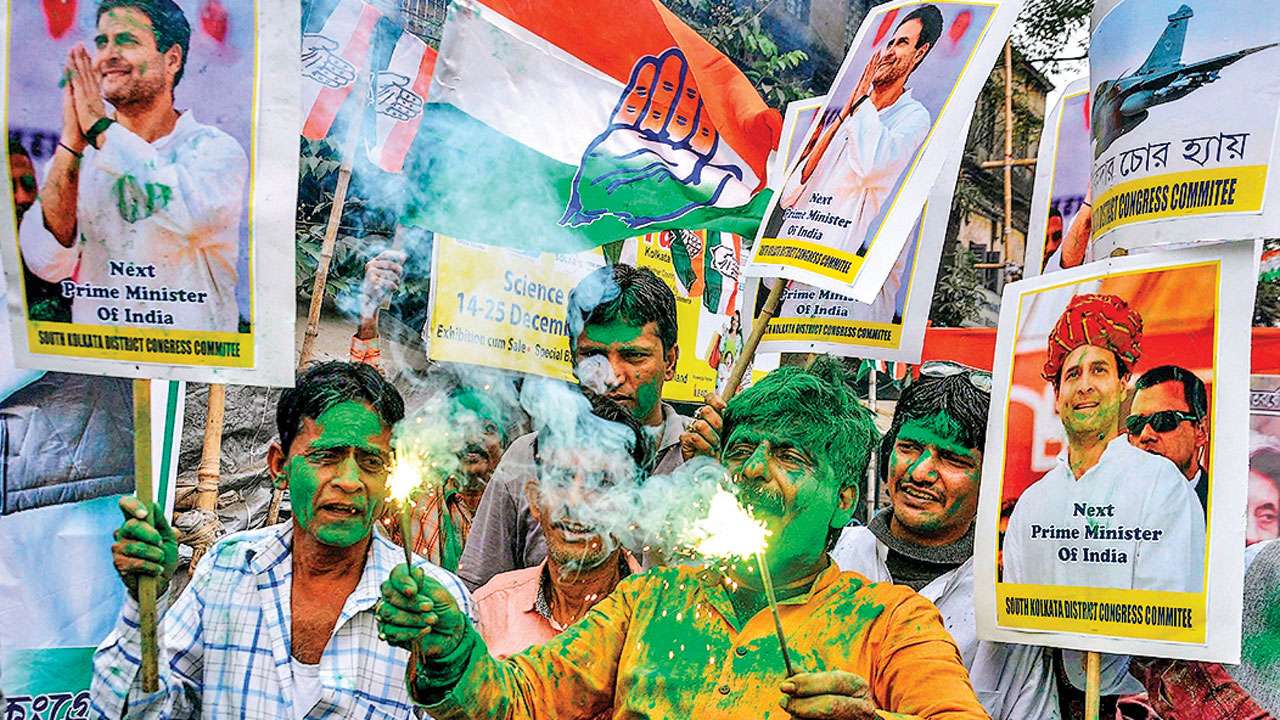Madhya Pradesh Assembly Elections 2018: Big challenge – Balancing freebies & growth

Madhya Pradesh Celebrations in the Congress camp in Madhya Pradesh will be short-lived if the party fails to deliver on the tall promises it made in run-up to elections , PTI
Amid rising fiscal deficit and outstanding liabilities, the new government in Madhya Pradesh will have a huge challenge to continue the growth momentum: 12.2% rise in gross state domestic product (GSDP) and 20.4% spurt in agriculture growth in 2016-17. The bigger worry for the new government is to mobilise funds to provide sops and freebies including higher minimum support prices (MSPs), loan waiver, bonuses and subsidised loans worth Rs 40,000 crore and Rs 5 bonus on every litre of milk.
This is quite important because Madhya Pradesh in 2018-19 budget has estimated fiscal deficit to be Rs 26,780 crore which is 3.2% of the GSDP. This is higher than the 3% limit prescribed by the 14th Finance Commission. Moreover, in 2018-19, the outstanding liabilities are expected to be 26.3% of the GSDP. It is to be watched whether the government dumps fiscal prudence to fulfill its poll promises in order to be populist.
Furthermore, another positive for the Madhya Pradesh is its revenue receipts are in excess of revenue expenditure. According to PRS Legislative Research, a revenue surplus implies that the government is not required to borrow in order to finance its expenses which do not create assets.
Congress in its poll promise had also assured reduction in electricity bills in half and bonus prices for virtually everything farmers grow including wheat, sugarcane, paddy, cotton, pulses, mustard, soyabean, garlic, onion and tomatoes. In addition to this, the Congress has promised payment of Rs 51,000 daughters of farmers for marriage.
Further, large funds will be required to increase irrigation potential in MP.
What will come in handy to the new government is increased revenue receipts. Delhi-based thinktank PRS Legislative Research in its analysis estimated the total revenue receipts in current fiscal will be Rs 1,86,699 crore, a rise of 13.7% over the revised estimates of 2017-18. Of this, Rs 65,589 crore (42% of the revenue receipts) will be raised by the state through its own resources and Rs 90,297 crore (58% of the revenue receipts) will be devolved by the Central government in the form of grants and the state's shares in taxes.